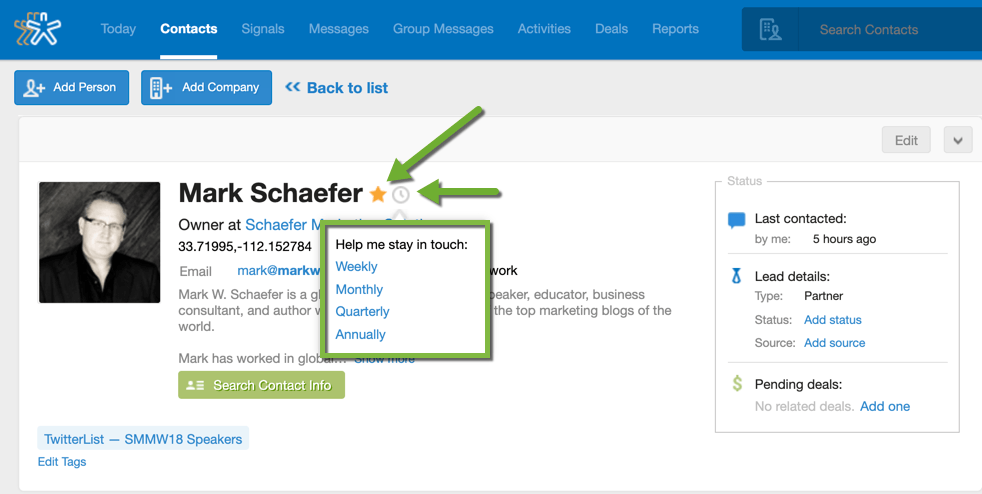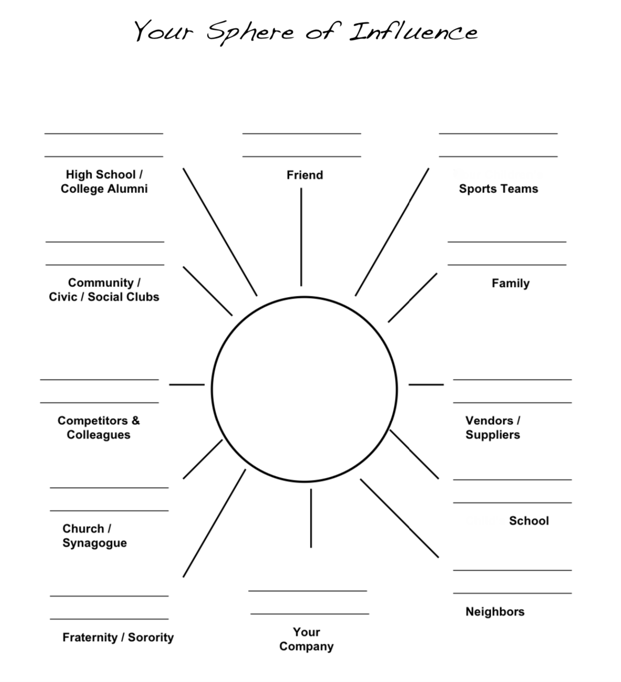
By Brooke B. Sellas, {grow} Contributing Columnist
Mark Schaefer and I recently explored the topic of nonprofit strategies being used in a for-profit businesses on an episode of the Marketing Companion.
Everlane, we discovered, uses nonprofit strategies not to grow revenue, but to meet the demand for its mission statement — become a fashion brand that ends the use of plastic.
It’s an interesting and relevant topic in a world where values-based marketing is becoming critically important. When companies begin to embrace nonprofit values, they’ll also have to consider nonprofit strategies.
Let’s explore that today.
Nonprofit Knowledge
Before my career in social media, I worked in nonprofit. I was responsible for raising about $750,000 a year for the Cystic Fibrosis Foundation (CFF) through 12 different events.
In fact, I came to realize social media management was a business model through my work at CFF. A group of young professionals, led by me, was able to create a pub crawl and get 7,500 participants using only Facebook and word-of-mouth in less than six months. We raised nearly $60,000 (when our new event average was about $5,000).
I’ve taken this knowledge with me in my own business, have used it on boards where I’ve served, and have come to realize its vast application in a for-profit business.
“Sharing is caring,” as we used to say in those days, so here are my three nonprofit strategies that I believe will make a huge impact on your business.
Your Network Is Your Networth
As cliche as it sounds, this saying is absolutely the foundation of everything I do. Even now, with my for-profit business.
The success and foundation of fundraising are building relationships. It’s not about filling a quota and more about building strong, long-lasting relationships.
In essence, it’s more about keeping in touch and making connections versus constantly making the ask.
This is one of the things I love about Nimble, the CRM I use to manage B Squared Media. Their “keep in touch” feature allows me to “star” important contacts and reminds me to follow-up on a recurring basis.
Here’s an example of Mark’s contact in Nimble and how I can prompt myself to keep in touch …

This is not your regular for-profit follow up! With nonprofit strategies and follow-up you …
- Can’t just reach out when you need something
- Only ask for money/a favor
- Limit outreach to responding to your network’s requests
You have to be interested, engaged and making little connection sparks all along the way.
And it goes without saying, you need a way to keep up with EVERYONE in your network. You can use LinkedIn, or a CRM, or even this handy-dandy little worksheet we used to have all of our volunteers fill out.

Fill this out once a quarter. It will change your thinking when it comes to your network.
Consider nonprofit strategies committees
Do you think I was able to handle 12 events and raising $750,000 by myself?! NO WAY.
However, I did not have an assistant, or coordinator, or any sort of paid help from CFF. What I did have was an army of volunteers, and I took the very best and brightest and formed a committee for each one of my events.
Our volunteers ranged from parents of children who had cystic fibrosis (CF), to industry executives, to up-and-coming “movers and shakers” in our local community.
The edge that committees give nonprofits (and your for-profit business!) is that these groups bring vast and varied ideas to you from their outside experience. While for-profit companies hire people who fulfill a special skill, committees aim to be more diverse. And the people on them are more apt to explore new ideas.
Everlane, as Mark and I discussed in the above-mentioned Marketing Companion episode, has a Sustainability Committee that helps oversee their environmental efforts.
I LOVE THIS.
One of the things I’m thinking about doing for my own company is creating a committee to oversee our HELLO Conference for 2020.
There are many ways in which you can utilize a committee-style group to help your business. Literally, the options are endless.
Form Purposeful Partnerships
Nonprofits are truly shaped by sharing. The Cystic Fibrosis Foundation, for example, is what you would call a “sharing organization,” meaning that they share their scientific findings and breakthroughs with other non-profits so that they may benefit.
What that means is that even though they may have spent millions on finding a medicine that doesn’t end up helping CF patients, but helps diabetes patients, they share those findings. (many, big-name charities do NOT share this information … which is why I always tell people to give wisely!!)
Adversely, for-profit businesses live in the world of intellectual property, proprietary information, and are not interested in sharing ANYTHING.
However, I find that when I share data, processes, and ideas with similar business owners, I uncover solutions that result in big wins. For instance, I belong to a few mastermind groups where dish out all kinds of “secrets” in order to help one another with our business gaps.
I have also partnered with other marketing agencies that don’t compete directly with me but deliver complementary services. This referral of business or lead sharing has helped us gain access to great clients and markets we wouldn’t have necessarily breached before.
Nonprofit strategies in your world
Obviously, there’s a balancing act that comes along with using nonprofit strategies in your for-profit business.
Used strategically, entrepreneurs can find interesting solutions that take from the unique viewpoints of nonprofit businesses and mold them into their own for-profit approach.
How about you? Do you use any nonprofit strategies in your own for-profit company? Let me know in the comments section below!

Brooke B. Sellas is the CEO & Founder of B Squared Media, an award-winning done-for-you social media management and advertising agency. Recently, she joined Mark Schaefer as the Co-host of the Marketing Companion Podcast. Brooke’s marketing mantra is “Think Conversation, Not Campaign” so be sure to give her a shout on Twitter!


